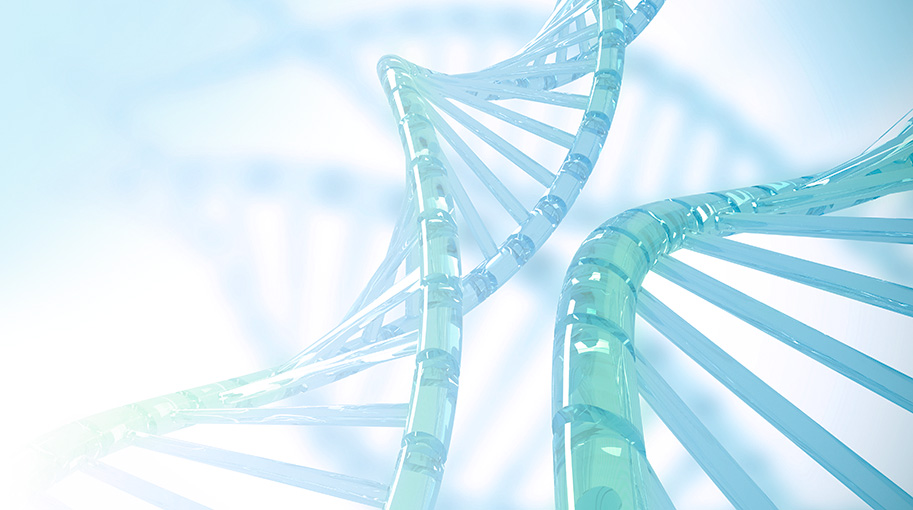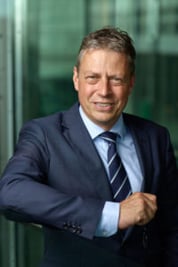Pharmacogenetics: do you have your DNA passport?

Abstract
Adverse drug reactions are a major problem in todays medicine: it is responsible for 5-7% of hospitalizations. A substantial part of this is due to interindividual variation in drug metabolism: the same drug dose will result in different blood concentrations and thus different outcomes in patients. Predicting the capacity of patients to metabolize drugs, based on their DNA profile (pharmacogenetics), will allow prior adjustment of drug therapy to fit their personal genomic profile. The cytochrome P450 (CYP) enzymes are involved in the metabolism of 80% of all drugs, and part of their enzymatic activity is genetically determined. The enzyme CYP2D6, for example, is involved in the degradation of 25% of drugs, but 5-10% of the population is deficient fro this enzyme due to inheritance of two inactive CYP2D6 variant alleles. Such a deficiency can be tested upfront, and drug therapy can be adjusted to personal DNA profile, thereby decreasing adverse drug reactions and improving effectivity.
Our 12 year experience in implementing pharmacogenetics in the Netherlands will be illustrated, covering the value of clinical evidence, education, availability of testing, laboratory and clinical guidelines, quality, feedback from clinicians and patients, reporting as well as financial and ethical aspects. Successes as well as unexpected challenges will be addressed. Also European initiatives such as the European Pharmacogenetics Implementation Consortium (www.eu-pic.net), the IFCC Task Force Pharmacogenetics and the European Society for Pharmacogenomics and Personalized Therapy (ESPT) (www.esptnet.eu) will be highlighted.
Drug dosing advices for guiding therapy based on genetic information is nowadays available. Because of the implications of a wrong outcome of such a pharmacogenetics test, especially in oncology patients, quality aspects of this type of genotyping is extremely important, and is currently the subject of discussion.
The Erasmus MC provides since 2015 DNA passports for guiding medication, addressing a pre-emptive genotyping approach. With this passport, one can visit any pharmacy in the Netherlands to obtain medication adjusted on genomic profile for over 80 drugs. The question is, therefore: “Do YOU already have your DNA-passport?”
Welcome to Helsinki and International Congress on Quality in Laboratory Medicine 8-9 February, 2018 to learn more. Prof. Dr. Ron HN van Schaik will give her presentation on Friday 9 February, 2018 (www.labqualitydays.com)

Prof. Dr. Ron HN van Schaik
IFCC Expert Center Pharmacogenetics
Dept. Clinical Chemistry
Erasmus University Medical Center
Rotterdam, The Netherlands
P +31-10-7033119
E r.vanschaik@erasmusmc.nl
W www.erasmusmusmc.nl/farmacogenetica
Prof. Dr. Ron van Schaik (PhD, FACB) is a registered European Specialist Laboratory Medicine and a Full Professor of Pharmacogenetics. He is working at the Dept. Clinical Chemistry at the Erasmus University Medical Center Rotterdam, and is Director of the International (IFCC) Expert Center for Pharmacogenetics. Main interest is Pharmacogenetic implementation and translational research. Specific research fields are organ transplantation, oncology, cardiology, pain and psychiatry. He has published over 220 articles on pharmacogenetics. Prof van Schaik participates in several National and International advisory committees on Pharmacogenetics (a.o. chair of the European Clinical Pharmacogenetics Implementation Consortium (Eu-PIC; chair (www.eu-pic.net), President of the European Society for Pharmacogenomics and Personalized Therapy (www.esptnet.eu), advisor of the Pharmacogenetics Working Group of the European Medicine Agency (EMA)). In 2001, he received the Ortho Clinical Diagnostics Award for Outstanding Research, in 2009 the AACC Outstanding Speaker Award, and in 2010 the AACC/Mol Pathology Award for Outstanding Scientific Research.
H-factor: 54 (http://scholar.google.com/citations?hl=en&user=nNiYxN8AAAAJ)
Website: http://www.erasmusmc.nl/akc/Over_AKC/800693/4012142/
International Congress on Quality in Laboratory Medicine
8-9 February, Helsinki
The 2018 congress scientific program deals with quality issues of laboratory medicine and advanced healthcare technologies. Two inspiring days with world class speakers will guarantee an unforgettable experience.


